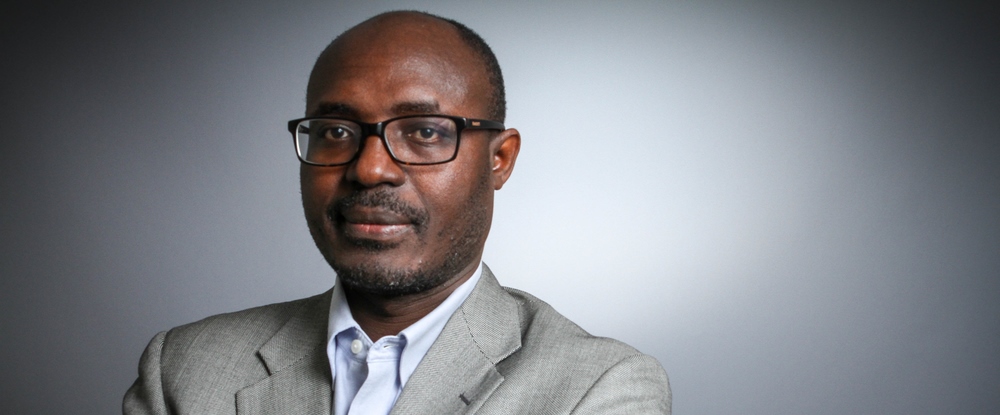Angolan Journalist Acquitted
July 10, 2018 | Expert Insights

Angolan journalist and human rights activist, Rafael Marques has been acquitted by a court in Luanda Friday in a ruling that is described as a huge victory for press freedom in the country.
Background
The Republic of Angola is a country in South Africa bordered by Namibia, Democratic Republic of Congo and Zambia. Its capital and largest city is Luanda. It is the 7th largest country in the African continent by area and the 2nd largest oil producer after Nigeria. Angola achieved its independence in 1975 from Portuguese colonial rule. The Angolan civil war between the People’s Movement for the Liberation of Angola (MPLA), a Communist movement and the insurgent anti-communist National Union for the Total Independence of Angola (UNITA) lasted until 2002. It resulted in 500,000 deaths and displaced 4 million Angolans, besides leaving the country full of landmines. Angola’s first general elections since the end of the civil war were held in 2008 and were won by the MPLA, and were praised as generally fair by most international organizations.
Angola is one of the world's fastest-growing economies. A large oil producer and a member of oil cartel OPEC since 2006, most of Angola's GDP comes from the oil sector. The country is also rich in diamonds, phosphate, and iron. Despite the country’s vast reserve of natural resources, most of its people live in poverty. The civil war greatly damaged the country's infrastructure, and corruption and mismanagement remain a drag on the economy. Most of Luanda’s five million residents are poor with most of the nation's wealth concentrated in a disproportionately small sector of the population.
Angola has long been criticized for its poor human rights record. The Presidency of former President Jose Eduardo dos Santos has been marked by appalling human rights violations. There were repeated attacks on the rights to freedom of expression, association and peaceful assembly. For decades, Angolans have lived in a climate of fear in which speaking out was met with intimidation, imprisonment and enforced disappearance. Those who denounced the President and the government such as peaceful protesters, human rights defenders and journalists were jailed for lengthy periods or disappeared without a trace.
Analysis
Rafael Marques de Morais, an investigative journalist and Mariano Bras, an editor were acquitted by a court in the capital Luanda. In June 2017, they were charged with insulting a public authority after they published an article that alleged that former Attorney-General Joao Maria de Sousa had acquired land illegally. The article was published on Marques’s website MakaAngola in November 2016 and later republished by O Crime, edited by Bras. It also suggested that former President Jose Eduardo Dos Santos supported the attorney general’s actions. In a country where the media are often targets of government repression through intimidation and abusive use of defamation laws, they were charged with “outrage to a body of sovereignty and injury against public authority,” under Angola’s Law on Crimes against State Security. If convicted, they would have faced a three-year prison term.
According to state prosecutors, the journalists had acted in bad faith and violated the ethical principles of journalism. However, the Judge Josina Falcao highlighted the importance of public servants being exposed to criticism and scrutiny. “This court believes that we would be doing very bad as a society that wants to progress, if we punished the messengers of bad news. This court, therefore, decides to send them back to their families at liberty and peace”, she said. The Committee to Protect Journalist (CPJ), an independent non-profit organization that promotes press freedom, welcomed the acquittal. “While the whole affair should never have taken place, (we) welcome this outcome," the CPJ said.
Marques has won several international awards for his investigative reporting including the 2018 World Press Freedom Hero Award. In 2015, he was convicted of defaming military generals in a book and was handed a six-month suspended prison sentence. In January 2017 former President Dos Santos signed a media law that limits freedom of expression, despite opposition from the journalist’s union and rights groups. The Angolan union of journalists called the law “a political tool to intimidate the press.”
Counterpoint
Despite the current President Joao Manuel Lourenco’s pledge to Angolans, the media remains largely controlled by the government and people linked to the ruling party. There are severe restrictions on freedom of expression and assembly, and limited access to information due to government repression and censorship.
Assessment
Our assessment is that the acquittal of Marques and Bras is a landmark judgment in the history of Angola’s repressive press laws. We believe that the Angolan government must now seek an amendment of the 2017 media law to enable journalists to work freely. We feel that criminal charges affect the right to freedom and access to information. These fundamental freedoms need to be safeguarded for a true democratic governance.








Comments